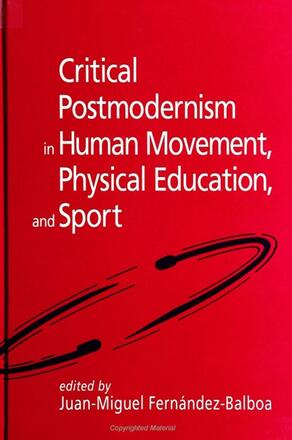
Critical Postmodernism in Human Movement, Physical Education, and Sport
Alternative formats available from:
Explores the possibilities of postmodernism in the field of human movement and shows how the profession is related to broader social, political, and cultural contexts and histories.
Description
This book proposes alternative ways of looking at human movement and brings into question the traditional role of the human-movement profession as an agent of social and cultural reproduction. The authors argue that the profession has traditionally shaped physical activities in schools and communities in disempowering ways and has adversely influenced how people view their bodies, apply physical activities to their lives, and use and understand the knowledge in the field.
To raise awareness of the possibilities of postmodernism for human movement, the contributors employ a critical postmodern conceptualization of the profession to explore the conflicts within it; to ask what can be done to strengthen it; to investigate how professional relations and meanings can be constructed within a new realm of justice, freedom, and equity; and to discuss the professional and civic principles to which the profession should subscribe.
Contributors include Linda Bain, Robert Brustad, Cathy Ennis, Larry Fahlberg and Lauri Fahlberg, Don Hellison, Alan Ingham, David Kirk, George H. Sage, Sue Schwager, Richard Tinning, and Gerd von der Lippe.
Juan-Miguel Fernandez-Balboa is Associate Professor of Kinesiology and Physical Education at the University of Northern Colorado.
Reviews
"A collection of sound, well-written, and complementary texts which provides a long-overdue and much-needed critical foundation for discourse on professional reform in Human Movement."--Ralph C. Wilcox, University of Memphis.
"This book has the potential to become a benchmark publication in the field of physical education. Every ten to fifteen years a notable text stimulates a paradigm shift in physical education, and I expect that this book may well foster such a paradigm shift." --Loy, Otago University, Dunedin, New Zealand.
"With this book, the field of human movement is moved into the next century. I especially like the brevity and conciseness of each chapter; the wide representation of some of the best thinkers' work in this field; and the transnational perspective." -- Synthia Sydnor Slowikowski, University of Illinois at Urbana-Champaign.